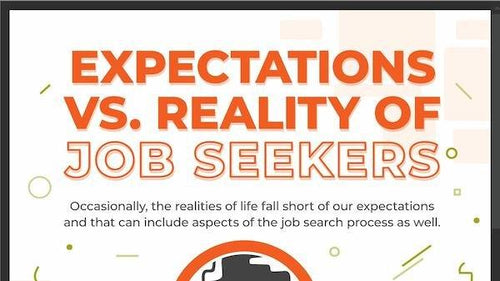
The Benefits of Coaching in the Workplace
Coaching plays a vital role in the success of employees and their organizations. Workplace coaching can help people polish their skills and improve their performance by providing them with the tools to think critically, solve problems, and continually evaluate their progress. Whether it is a startup company or one that has been established for years, systemic performance coaching can make a difference in whether an organization succeeds in today’s fast-paced market.
There are a number of benefits associated with employee coaching. Here, we will outline some of the concrete examples of these benefits.

This blog contains affiliate links, meaning I may receive a small commission (at no cost to you) if you subscribe or buy something through the links I share. I only share links to products or services that I use myself or absolutely love!
Coaching provides a strategic framework to ensure personal and professional goals are set and achieved.
Sometimes, accomplishing objectives – whether for personal or professional development – can feel like a challenge that’s taking up an overwhelming amount of time and effort. This is where a coach can come in to help optimize the process.
Coaches are strategic partners who provide feedback and support based on their firsthand experience and knowledge. They are specifically trained to provide employees guidance on establishing the best strategies to accomplish their goals. They aid the continuous improvement of individuals by challenging them to identify obstacles that are preventing them from reaching their goals. After doing so, they co-create attainable short- and long-term initiatives, work on upskilling, and act as an accountability partner.
Coaching can help employees address work-life balance issues.
Work-life balance is directly correlated with employee health and happiness. However, it isn’t something that’s easily attained by everybody. With the increasing workplace duties and responsibilities at home, employees can’t help but feel overwhelmed, which negatively impacts productivity, innovation, engagement, and more.
Coaching can help employees achieve a healthier balance between their personal and professional lives. By offering personalized support and professional insight into best practices, coaches can prepare employees to set clear boundaries and make better decisions about how to effectively manage their overlapping priorities.
Coaching increases employee engagement and commitment, which reduces turnover.
Employee turnover puts a strain on the time, human capital, and financial resources of organizations across the globe. When employees aren’t happy or aligned with the vision of a business, they may contribute to a significant loss of productivity or decide to leave an organization altogether.
A good coach knows how to connect with and inspire employees to boost their motivation. Coaches can help individuals identify a sense of purpose that drives them. When employees find passion in their professional pursuits, they understand the why behind what they do, and feel as though they are contributing to something meaningful.
Coaching leads to better interpersonal skills.
In the workplace, employees are required to work with individuals who have diverse personalities, backgrounds, and experiences. While it can sometimes be difficult to collaborate or communicate with those who have unique perspectives, it becomes much easier with the help of competent coaches. Instead of seeing interpersonal communication as a challenge, coaches can position new interactions as opportunities for individuals to use and enhance their verbal and nonverbal skills.
By working with a coach, people can increase their self-awareness and confidence in building rapport with others. This results in a more productive and efficient workforce that can easily adapt to the communication needs of employees from a variety of backgrounds.
Coaching empowers employees to be responsible for their own development.
Coaches are strategic partners in helping employees develop their own valuable tools, such as initiative and self-management. Since coaching focuses on individual-level development, coaches are able to encourage people to be proactive in pushing their own growth rather than relying on direction from others. With the help of a coach, employees learn how to autonomously develop themselves.
Coaching creates a safe space for people to be heard.
It’s not uncommon for employees to have reservations about speaking up in their workplaces, especially when they are new to companies and don’t want to rock the boat. Additionally, when associates feel like their concerns are not heard or validated, it can lead to resentment, which ultimately harms their performance and productivity levels.
To prevent this feeling, coaches focus on creating psychologically safe environments where employees feel comfortable asking questions, sharing ideas, seeking feedback, and voicing their concerns without fear of judgment or retaliation. This allows employees to feel like they are valued and included in a company’s culture. Not only does a safe space benefit employees, but it also presents an opportunity for leaders and teams to have productive and honest conversations about goals, expectations, and performance.
Why invest in employee coaching?
There’s no denying that employees are a company’s greatest assets. What companies need to remember is that employees are whole people with identities outside of their professional careers, which is why it’s important to give them opportunities to advance their whole lives through coaching.
Coaching can help employees at different stages of building their careers, from individual contributors to CEOs. This is not only advantageous for employees, but it is also advantageous for employers who get to experience the direct and indirect benefits of systemic performance coaching. While employees develop skills relevant to their positions, companies improve their overall employee experience and retention rates.
Related Articles
-

10 LinkedIn Mistakes That Cost Job Seekers Interviews (How to Fix It)
Guest blogger outlines how to avoid these LinkedIn mistakes to drastically improve your chances of being noticed, whether you’re actively job hunting or just trying to grow your professional presence.
-

Guide To Choosing A Career In SaaS
Thinking about a career in SaaS? Guest blogger Jacob Wickett shares top roles, key skills, and how to break into this fast-growing industry.
-

Mastering the Modern Workplace: Essential Skills for Career Growth in the Age of AI
Guest blogger Sadie Smith shares a comprehensive guide to help professionals navigate unprecedented changes driven by technological advancement with confidence.
-

Navigating Your Career Path with a Family Nurse Practitioner Degree Program
Guest blogger Sadie Smith reveals how strategic planning in your healthcare career broadens your impact on patient care and community health.
-

Career Transitions: Navigating Your Path to Success in Healthcare and Beyond
Guest blogger Sadie Smith shares how to leverage your existing skills and experience while pursuing new career opportunities in healthcare and other industries.
-

Breaking Barriers: A Guide to Empowering Women in Manufacturing Leadership
Guest contributor Sadie Smith shares this comprehensive guide on how women can reshape the manufacturing industry landscape with actionable insights.
-

Navigating An Evolving Job Market With Strategies For Success
To thrive in a dynamic job market, you need to continuously adapt your job search strategies. Stay informed and flexible to position yourself for success.
-

Can Workplace Harassment Occur Over Social Media?
Guest blogger Caren Sainz breaks down how to set clear boundaries and seek legal assistance if you're a victim of workplace harassment over social media.
-

4 Personal Assistant Interview Questions and Answers
Guest blogger Liza Griffen, co-founder of Tyler Griffen, equips you with a deep understanding of typical interview questions and practical answers to help you showcase your skills effectively whether you're aiming to impress in your first personal assistant role or looking to step up in your career.
-

Crack Your Dream Company Interview
Guest contributor Nandkishore Rathi shares practical tips, strategies, and insightful advice from career experts to help you shine during written and verbal interviews.
-

Exploring The Realities Of Job Hunting (Infographic)
Guest contributor Joseph Matalone delves into common expectations in job seeking and the contrasting realities.
-

Don't Panic: 15 Ways To Prepare For A Video Interview
Guest blogger Daniel Boyce with Aware Recruiter delves into 15 actionable steps to prepare you for a stellar video interview experience whether you're a seasoned professional or just stepping into the job market.
-

5 Signs That A Company Values Employee Wellness And Safety
Guest blogger Sharon Feldman shares how asking questions about wellness and safety in your interview could give you insight into a company’s values.
-

Can An Employer Fire You For Being Sick?
Many employers can terminate an employee for falling sick frequently. Guest blogger Natalie Padilla shares all you need to know regarding being fired by an employer.
-

Tips On Building A Positive And Supportive Workplace
Guest blogger Adam Blacksmith shares how to embrace communication, celebrate diversity, and empower your team for success by fostering a positive and supportive workplace culture.
-

AI: Transforming Networking, Interviews, and Careers
Guest Author, Dean Fankhauiser. discusses how AI is revolutionizing networking, interviewing, career planning, and professional advancement.
-

Preparing for Different Interview Formats: Phone, Video, and In-Person
Interview Coach Ellie Hoekman shares specific preparation steps for phone, video, and in-person interviews.
-

Negotiating A Competitive Salary
Guest blogger Rohan Singh shares strategies for negotiating a fair salary that reflects your worth and fulfills your goals.
-

Can My Employer Ask Why I’m Taking A Sick Day?
Guest blogger Samantha Larson shares whether your employer has the right to ask you why you are sick and how much information they are entitled to when you take a sick day at work.
-

10 Facts & Stats About Sexual Harassment in the Workplace
Guest blogger Sharon Feldman shares how many people experience harassment every day, including at their place of work, to increase awareness.
-

The Ultimate Temping Guide for Beginners
Guest blogger Auria Heanley with Oriel Partners shares insight into what a temp job is and what to expect in order to make the most of a new job opportunity.
-

High Paying Career Paths After Learning Python
Guest blogger Rose Young with Codebasics.io shares some of the promising career paths you can explore after learning Python programming.
-

How To Ace Your Interview With A Staffing Agency
Guest blogger William Powell shares how to prepare adequately for an interview with a recruiting agency to increase your chances of landing your dream job.
-

How Do You Know When It's Time To Quit Your Job?
Guest blogger Katie Meyers shares when quitting your job is the right thing and how to go about it.
-

5 Things You Need To Know About Job Interviews To Succeed
Guest blogger Marcus Ralph shares 5 tips on what you can do before a job interview to be best prepared to make a solid first impression and land the job.


























